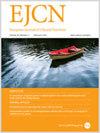早产儿母乳喂养的临床评估。
IF 3.6
3区 医学
Q2 NUTRITION & DIETETICS
引用次数: 0
摘要
母乳给早产儿带来了经验上的益处,但这一人群的直接母乳喂养率仍然很低。对于早产儿来说,评估母乳喂养时从母亲输送给婴儿的母乳量可能很有用,尤其是在母乳喂养流失率较高的过渡到口服喂养期间。早产儿母乳喂养的建立非常复杂,如果不了解母乳喂养期间的乳汁摄入量,就有可能导致不准确的辅食添加,进而影响生长和营养。在此,我们回顾了早产儿母乳喂养临床评估的证据,包括测试称重、使用同位素标记水和临床观察工具来评估母乳喂养是否充足。测试称重是一种有效的测量方法,但需要严格的操作规程和对小婴儿的进一步研究。使用同位素标记水是一种有效的技术,但由于取样要求,它反映的是几天或几周的摄入量,而不是单次喂养。对早产儿进行评估的临床观察工具还不能反映母乳摄入量。虽然目前的方法有其局限性,但我们的目标是确定可用作临时辅助工具的测量工具,以促进向直接母乳喂养过渡,同时最大限度地降低不准确添加辅食的风险。本文章由计算机程序翻译,如有差异,请以英文原文为准。
Clinical assessment of breastfeeding in preterm infants
Breastmilk confers empirical benefits for preterm infants, however direct breastfeeding rates in this population remain low. For preterm infants, it may be useful to assess the volume of breastmilk transferred from mother to baby when breastfeeding, particularly during transition to oral feeding when breastfeeding attrition is high. Establishing breastfeeding in preterm infants is complex and without knowledge of milk intake during breastfeeds there is risk of inaccurate feed supplementation with subsequent effects on growth and nutrition. Here we review the evidence for clinical assessments of breastfeeding in preterm infants including test weighing, use of isotope labelled water and clinical observation tools designed to estimate adequacy of breastfeeds. Test weighing is a validated measurement, however requires rigorous protocols and further investigation in small infants. Use of isotope labelled water is a validated technique but, due to sampling requirements, reflects intake over days and weeks instead of individual feeds. Clinical observation tools assessed in preterm infants, have not been shown to reflect volumes of breastmilk intake. While current methods have limitations, the goal is to identify measurement tools to be used as temporary aids to facilitate transition to direct breastfeeding while minimising risk of inaccurate supplementation.
求助全文
通过发布文献求助,成功后即可免费获取论文全文。
去求助
来源期刊
CiteScore
10.60
自引率
2.10%
发文量
189
审稿时长
3-6 weeks
期刊介绍:
The European Journal of Clinical Nutrition (EJCN) is an international, peer-reviewed journal covering all aspects of human and clinical nutrition. The journal welcomes original research, reviews, case reports and brief communications based on clinical, metabolic and epidemiological studies that describe methodologies, mechanisms, associations and benefits of nutritional interventions for clinical disease and health promotion.
Topics of interest include but are not limited to:
Nutrition and Health (including climate and ecological aspects)
Metabolism & Metabolomics
Genomics and personalized strategies in nutrition
Nutrition during the early life cycle
Health issues and nutrition in the elderly
Phenotyping in clinical nutrition
Nutrition in acute and chronic diseases
The double burden of ''malnutrition'': Under-nutrition and Obesity
Prevention of Non Communicable Diseases (NCD)

 求助内容:
求助内容: 应助结果提醒方式:
应助结果提醒方式:


